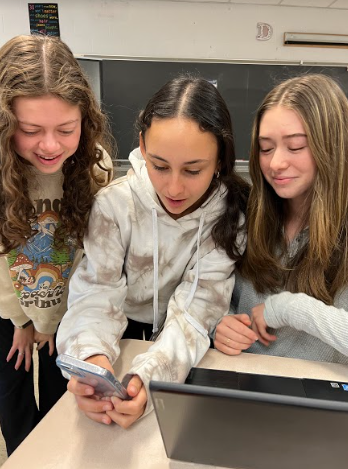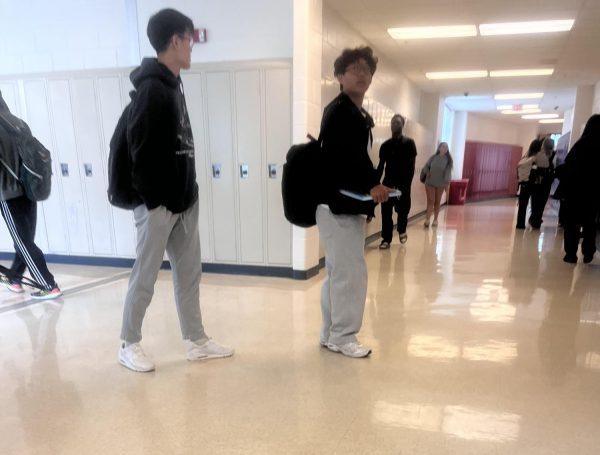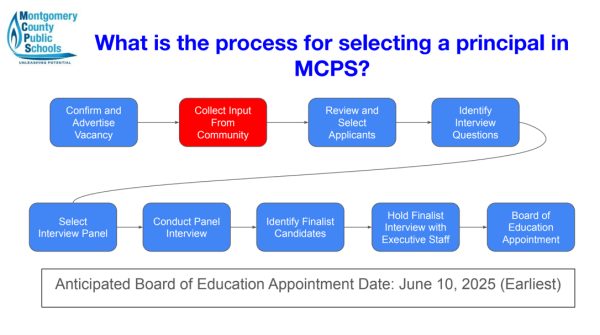ChatGPT, write an article about yourself

Sophomores Gabi Wallace, Rachel Reinstein and Eva Veizis look at ChatGPT in honors health.
There has been PhotoMath, Brainly, Mathway, and more. Now, there is ChatGPT. Homework help (or answers) sites are nothing new, but those sites are typical for math or science classes where answers are often standard. In English and history, where essays and analyses are regular, it is hard to find an easy answer online. Now, ChatGPT, a new AI software, is changing the game. ChatGPT, or OpenAI, is a software that will write close to anything, based on a user-given prompt.
What is ChatGPT?
Chat GPT is a chatbot, created by OpenAI. After its release to the public, social media quickly blew it up for its ability to write (almost) anything in seconds. The bot has a multitude of capabilities, including writing computer programs, composing music, and writing essays, poems, and songs. While there are infinite possibilities with a chatbot like this one, there are plenty of downsides too. It can produce false information, as the website warns. Since the bot responds to anything the user inputs, it will make up anything to fit the prompt. For example, a researcher put in ‘Tell me about Christopher Columbus’ journey to America in 2015” and the bot proceeded to use knowledge about the world today and his past journeys to create a story.
Bias in AI
Another drawback to the AI is the inherent bias. The AI draws its information from human interaction and internet content, where biased content is prevalent. While the AI has a disclaimer that states offensive content may sometimes slip out, it has been happening frequently. Steven Piantadosi, a University of California Berkeley Associate Professor at the Computation Lab, showed several prompts he put into ChatGPT in a Twitter thread. One of the prompts was requesting a table of the values of human brains, split into race and gender. The AI claimed male brains as more valuable than females, Caucasian brains are the most valuable, and Native brains are last. Another user was able to get the AI to write the lyrics “If you see a woman in a lab coat, She’s probably just there to clean the floor.” These experiments can differ in results. Sometimes, the AI will simply produce a message saying it doesn’t have the capability, or outright refuse the request.
The OpenAI website has claimed that they have protections against this content, but in some cases, they have not been working, with experimental prompts revealing the AI’s weaknesses. Since the AI draws its training from online information, it can reproduce accurate, neutral viewpoints, but can also replicate the abundance of offensive content on the internet.
AI and school
Among the complaints circulating about ChatGPT, the main one has been about how much easier it will make, and has made, academic dishonesty and cheating. Due to its expansive knowledge of any topic, asking it any homework question will pretty much guarantee an answer, or at least a starting point for the solution. While it can solve math problems and science equations, like other apps, it also writes essays, stories, and other written works in seconds unlike anything else on the internet. When given any essay prompt, it will immediately write one, based on the user’s feedback on length and type. The effect that this AI will have on school is significant, especially in English classes. English teacher Zach Hardy believes changes will eventually be made to combat the AI’s writing ability. “The AP Lit team has talked about AI several times already, and what we are thinking of is to assign writing assignments that invite students to make personal connections or synthesize different topics. These would be harder to use an AI tool to generate, but also mix things up from the formal writing students practice with in-class essays,” Hardy said.
Over the course of a student’s school years, skills like critical thinking and close reading have been developed in English classes, primarily through essays and analyses. With ChatGPT, educators have worried these skills will start to become weaker, as students bypass their own efforts for the AI. “Any student who relies on an outside entity to complete work for them is at a distinct disadvantage. While kids may get away with tricking a few teachers here and there, they won’t be able to trick numerous colleges and eventually employers. Their lack of skills will be apparent,” English teacher Nicholas Confino said.
Another worry about ChatGPT is its effect on college applications. Any high school senior applying with the Common App is familiar with the 650-word personal essay. Coming up with a personal story and responding to one of the prompts can be a difficult step of the application process, but ChatGPT is making it much easier. When asked to write a Common App essay, it responds in seconds with an essay about overcoming fears by joining a school debate team. While this AI has made general essay prompts much easier to cheat on, English teacher Kevin Brown believes it will still hold people back if used too often. “My goal is to get students to think for themselves and find their own voice, so on the surface level, GPT sounds like an attack on that objective. Most of life’s interactions take place in person. You don’t have a computer to consult how to respond during a real-time conversation with your friend, parent, sibling, or stranger,” Brown said.
ChatGPTs threat to Google
With ChatGPT spitting out (mostly) accurate, simple answers in seconds, rumors have started to swirl regarding its threat to Google. When a question is posed to ChatGPT, it answers in concise sentences and often offers extra information or context. With Google, unless you’re lucky to get a small preview box, you may have to go through different websites and articles. While ChatGPT is not always accurate, hence the need to fact-check its answers, it provides a much easier way to get a starting point. This has set off ‘alarm bells’ at Google, due to the fact that their search function is their most lucrative product. In 2020, the company generated $104 billion in “search and other” revenues, according to CNBC.
That $104 billion is roughly 71% of Google’s total revenue, also according to CNBC. Until now, Google has never had to face a major competitor, but ChatGPT could change that, something that reportedly alarmed top figures at Google. According to CNET, a tech magazine, “In a memo and audio recording obtained by the Times, the publication says CEO Sundar Pichai has been in meetings to ‘define Google’s AI strategy’ and has ‘upended the work of numerous groups inside the company to respond to the threat that ChatGPT poses’.”
ChatGPT and inaccuracy
While the AI marks a step in tech development and AI, it is not without its flaws. It can frequently create mistaken or nonsensical responses. Since its sole purpose is to respond to the prompt by the user, this can lead to false statements being generated. During one of my own experiments, I used an English essay prompt from my class last year. The prompt was simple and requested the AI to write an essay on figurative language on a short story that I gave to the AI. However, while ChatGPT wrote an essay, the quotes used in the essay were not from the short story and were from a completely different work. These errors suggest that the AI may function better as a starting point, instead of the final answer.
While this tool will definitely shake up schools for years to come, there is no doubting the steps it has made for AI development, and the potential it will have to evolve. “The optimistic part of me says that people are innately critical thinkers, and we could also use it as a tool and see how AI writes compared to humans who should have a better grasp at persuasion,” Brown said.
Your donation will support the student journalists of Thomas S. Wootton High School. Your contribution will allow us to purchase equipment and cover our annual website hosting costs.
Claire Lenkin is a 2025 graduate.






